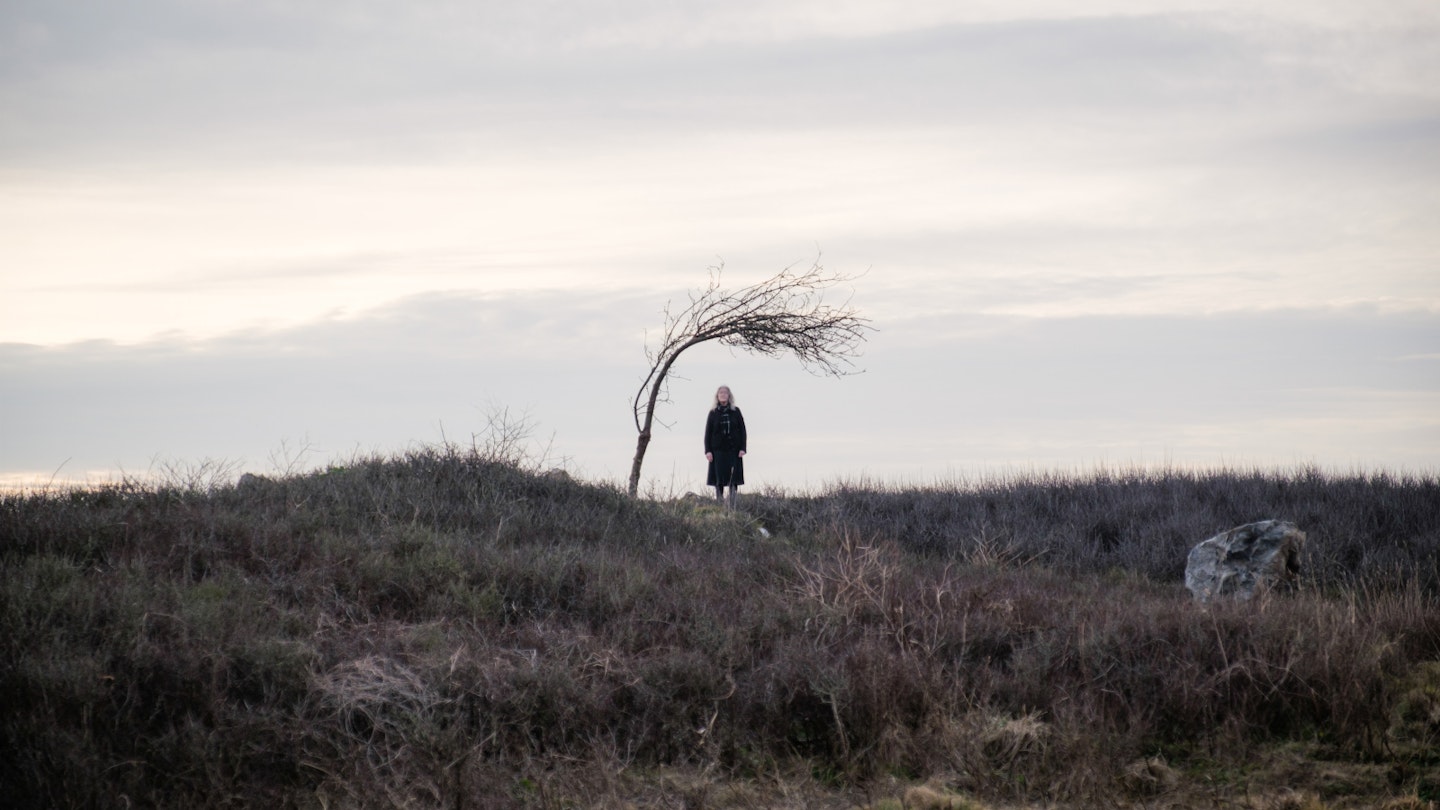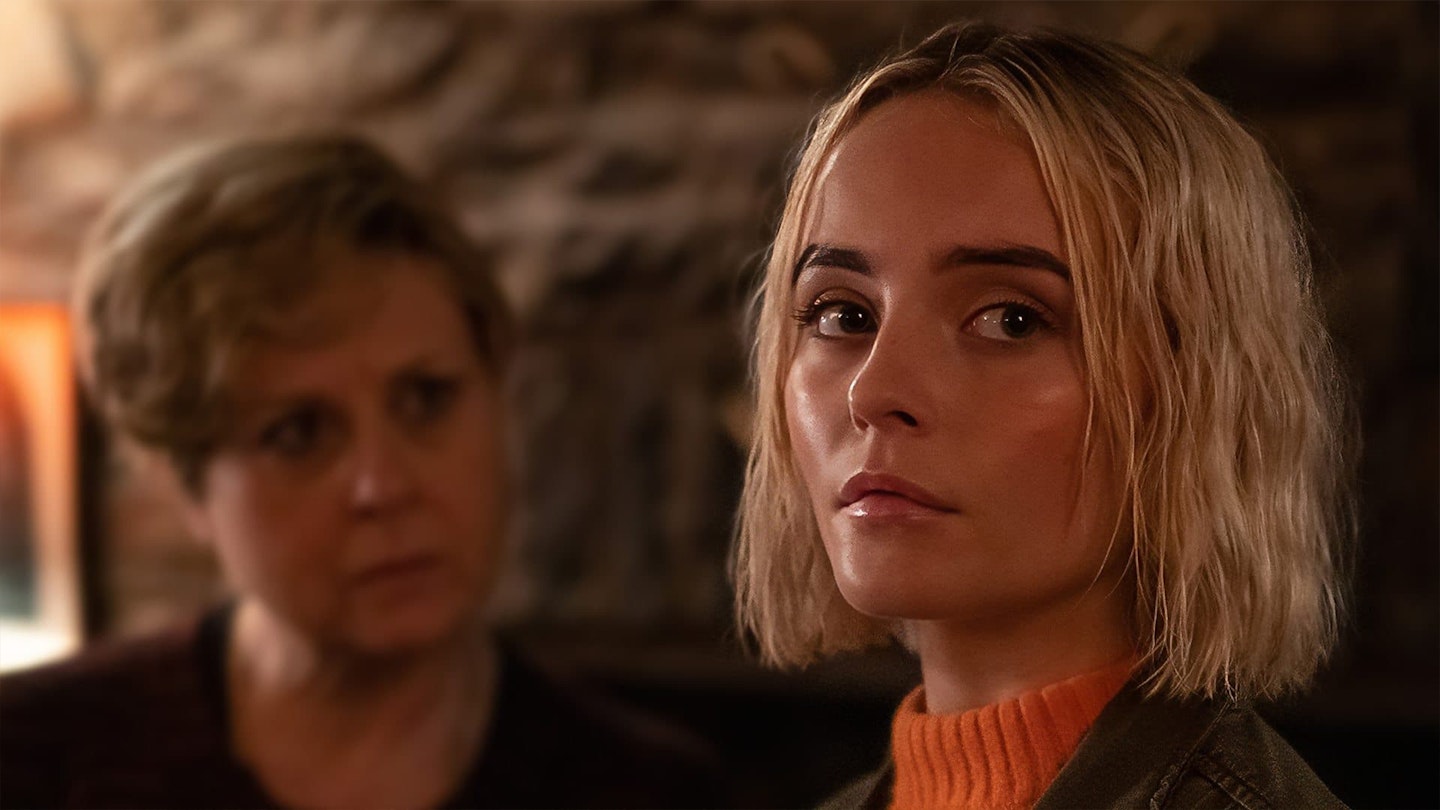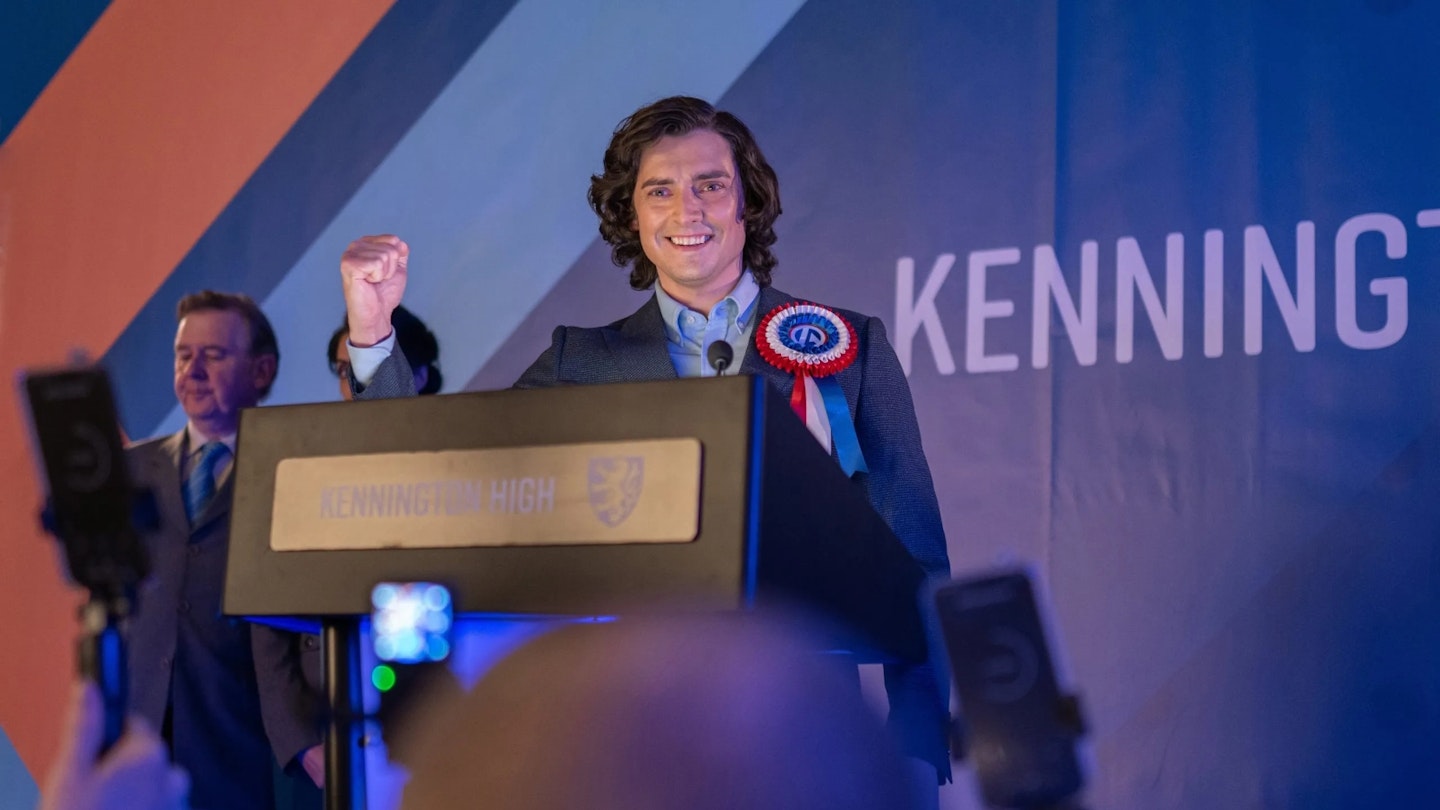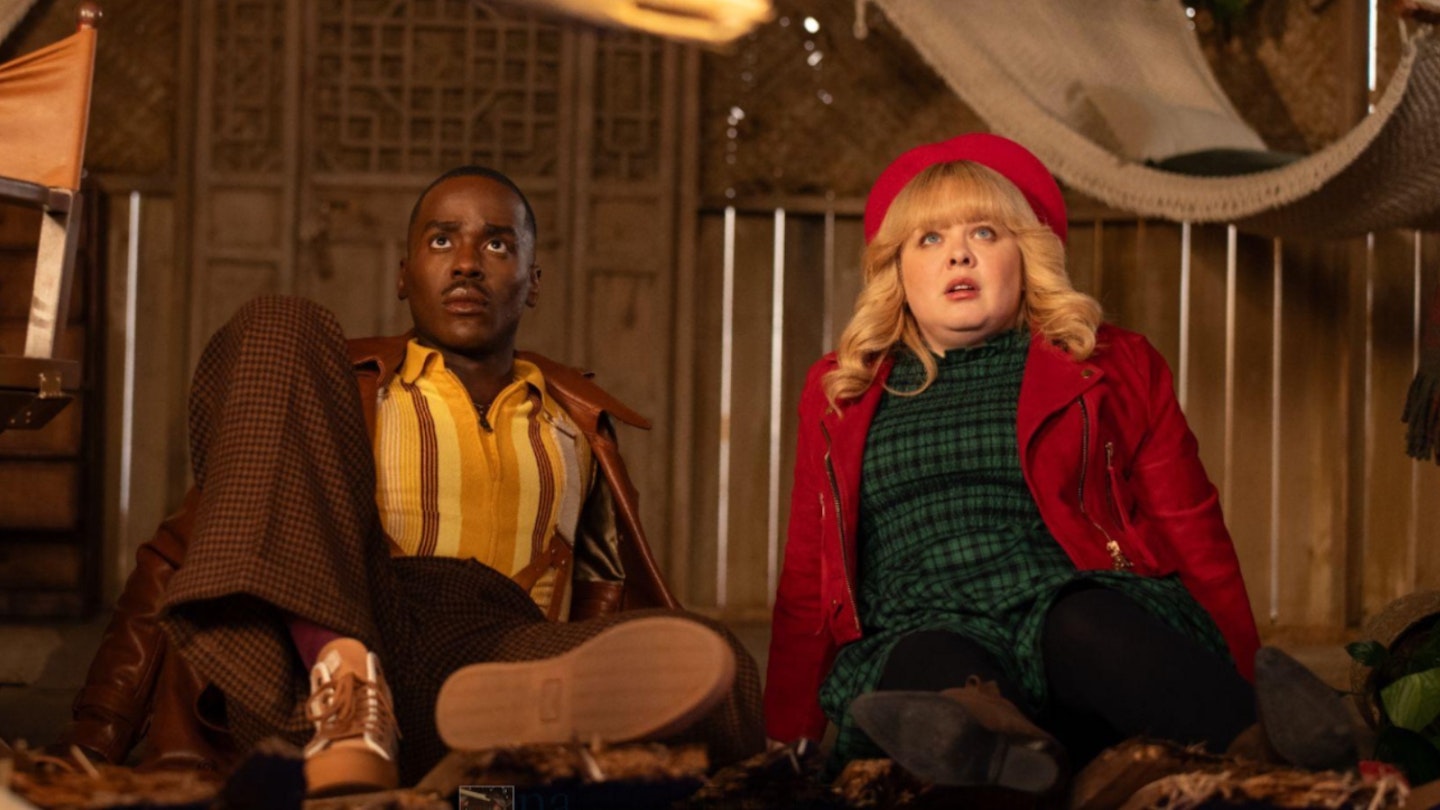*Warning — this review contains some spoilers for '73 Yards'*
With last week’s incendiary chamber-piece ‘Boom’, Steven Moffat took Doctor Who back to basics, delivering in the process the first true classic of the show’s latest reboot. Give it some time, and Russell T. Davies’ follow up, '73 Yards', may yet prove to be its second. Emphatically swinging the series’ genre pendulum back from sci-fi to the supernatural, Davies' latest self-penned offering is a deliciously dark, near-Doctorless diversion into folk horror territory. Eerie, elegiac, and ambiguous almost to a fault, it's a properly haunting tale that’s destined to be talked about, debated, and theorised upon for years to come.
Right from the get-go, it’s clear this isn’t going to be your average episode of Doctor Who. A pointed lack of opening titles adds an extra chill to ‘73 Yards’’s cold open, which sees the Doctor (Ncuti Gatwa) and Ruby (Millie Gibson) land the TARDIS on a blustery Welsh clifftop. Things quickly take an unexpected turn for the duo when the Doctor, having dispensed with a soon-to-be-relevant tidbit of info about a nuke-happy future Welsh Prime Minister, unwittingly steps in a fairy circle and vanishes, leaving a perplexed Ruby stranded and alone. Well, almost alone. From 73 yards away — always 73 yards away — a mysterious woman watches on, following Ruby wherever she goes and sending all those who approach (including one Susan Twist — back again, notably clocked here by Ruby as a familiar face) running for their lives.

It’s a legitimately terrifying premise — think It Follows in the visual and tonal key of Enys Men, with a touch of Who spin-off The Sarah Jane Adventures' 'The Curse Of Clyde Langer' — and one effectively augmented early doors as Ruby heads to a nearby pub seeking help. Crashing thunder, hammering rain, and ominous, lamp-lit shots of the 'semper distans' woman at the end of the road provide an atmospheric backdrop as Ruby is given the outsider treatment, An American Werewolf In London style, by the local boozer’s regulars. And though their tales of local devil incarnate Mad Jack being unbound by the fairy circle’s breaking may ultimately serve a rug-pull calling out the ludicrousness of enduring, racist notions of Wales as an archaic land of “witches and druids”, it doesn’t negate the scene’s palpable sense of foreboding. Put it this way, if the pub had been located at a No. 9, it wouldn’t have surprised us — an alternate version of this tale could’ve easily seen Ruby trapped in the confines of ‘Y Pren Marw’ (‘The Dead Wood’) with its eclectic denizens, slowly losing her sanity.
The machinations of folk horror and director Dylan Holmes Williams’ impressive visual sense of the genre — and of its spatial psychogeography — continue to drive the plot of ‘73 Yards’ onwards as Ruby, followed still by her phantom-like companion, eventually leaves Wales for home. But as the needle on Ruby's timeline is pushed ever forwards, it becomes increasingly clear that whilst the plot here may concern fae curses, folklore, and spectral figures, the story is grounded in something far more human.
It's a big, bold swing of an ending from Davies, and one you'll be invariably left thinking about long, long after it ends.
Over the course of '73 Yards', we see Ruby Sunday time and again being confronted with the physical manifestation of her deepest fear — abandonment. We see it in the heartbreak of her adoptive mother Carla (Michelle Greenidge) succumbing to the 73-yard woman's whispers and turning her away; we see it again when she seeks the counsel of spook Kate Lethbridge-Stewart (Jemma Redgrave), only for her and her whole UNIT taskforce to up sticks and run (but, at least, not before teasing parallel timelines at play in this new-look Whoniverse); and we see it yet again during a powerful montage in which Ruby — at 25, 30, and then 40 years old (an ageing process communicated more effectively by her birthday cards than the make-up department, admittedly) — continues living her Doctor-free, stalker-present life, pursuing a number of relationships which all ultimately crumble because she's forever looking over her shoulder, anticipating an ending. What the mysterious woman could possibly be saying to send those around Ruby running isn't half as important as the fact that they do, invariably, run. Purposeful ambiguity can be infinitely more powerful than extraneous exposition, and the questions — of the whos, the whats, the whys — '73 Yards' poses are where its true horror lies.

Considering she was just 18 years old whilst shooting, and that Ncuti Gatwa's Sex Education commitments made this the first episode of Who she filmed, Gibson's simultaneous embodiment of Ruby's bone-deep grief and indomitable spirit — the maturity with which she carries the weight of her character's history whilst preserving the burning mystery surrounding it — is nothing short of remarkable. Even Davies' somewhat clunkily manoeuvred, could've-been-its-own-episode, Years & Years inspired third-act turn into political thriller territory can't derail Gibson's tour de force turn. In fact, the arrival of Aneurin Barnard's darkly charismatic Roger ap Gwilliam, a budding right-wing Welsh PM candidate nicknamed 'Mad Jack' who really wants to launch a nuke (what was that the Doctor said earlier about nuke-happy PMs?), affords Gibson a chance to dig deeper yet into Ruby's constitution. More than capably handling Ruby's infiltration of Gwilliam's shadow cabinet, Gibson manages to find nuance within an otherwise misguided and deeply unsettling sub-plot concerning the would-be Prime Minister's ashen-faced aide Marti (Sophie Ablett). In an episode whose ultimate success hinges on the viewers' ability to suspend disbelief in the pursuit of a deeper lying emotional truth, Gibson's ability to locate that truth, no matter the situation, proves pivotal.

During the episode's head-spinning climax, we find an elderly Ruby laid up in a hospital bed, telling the nurses how she used to be able to make it snow and reflecting on her years of solitude. "Everyone has abandoned me my whole life," she states, "but I haven't been alone for 65 years." Then sure enough, in the dead of the night (and in arguably the scariest single scene in the last decade of Doctor Who), her life-long companion returns, and finally we learn who the woman following Ruby has been all along. For some, Ruby's circle-closing revelation and the conclusions it invites viewers to draw for themselves will be what elevates '73 Yards' into the pantheon of the greats; for others, the plot's tantalisingly dangled threads and their refusal to be tied up will prove the episode's undoing. Either way, it's a big, bold swing of an ending from Davies, and one you'll invariably be left thinking about long, long after its end. Sounds like another classic to us.








